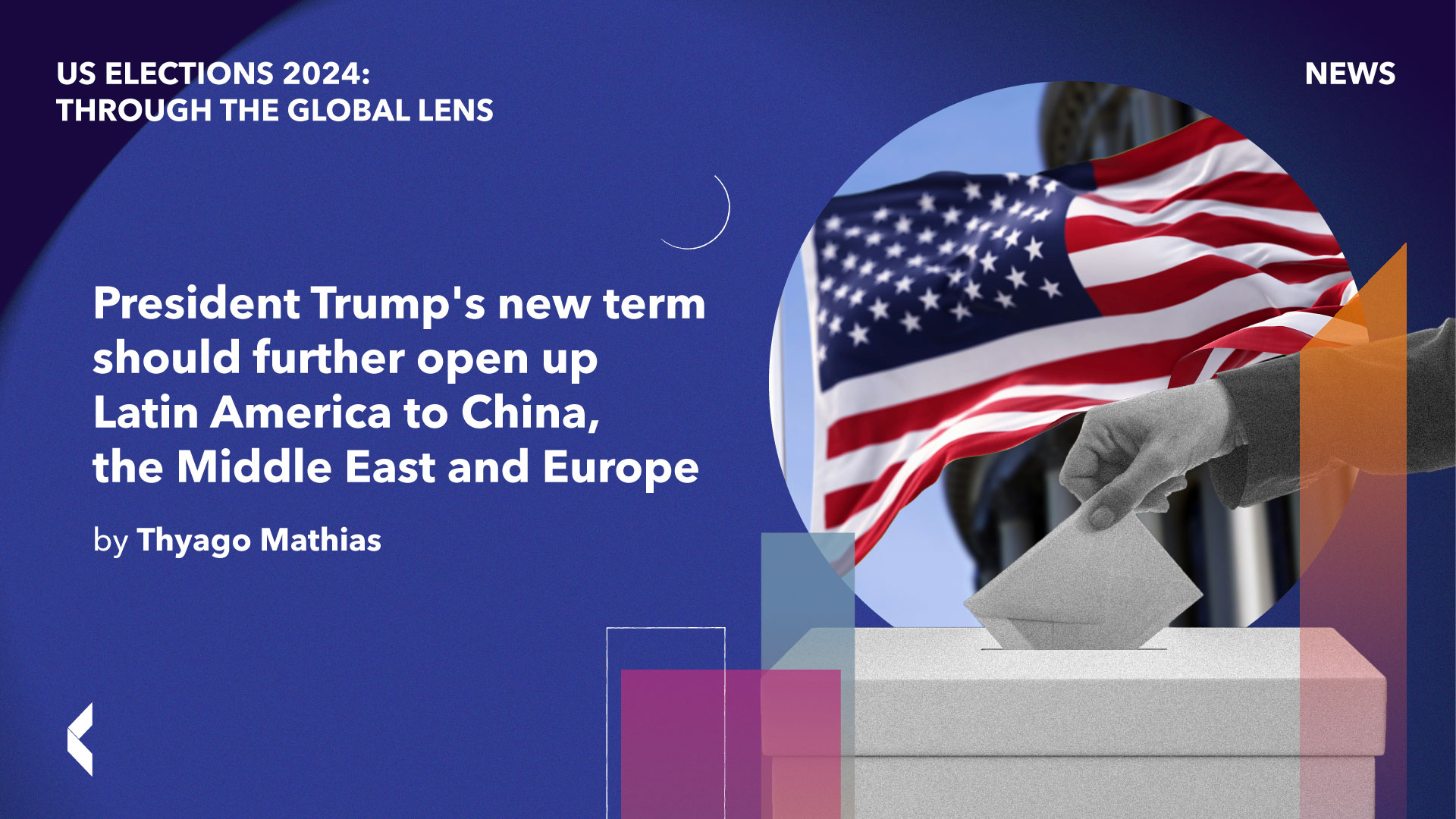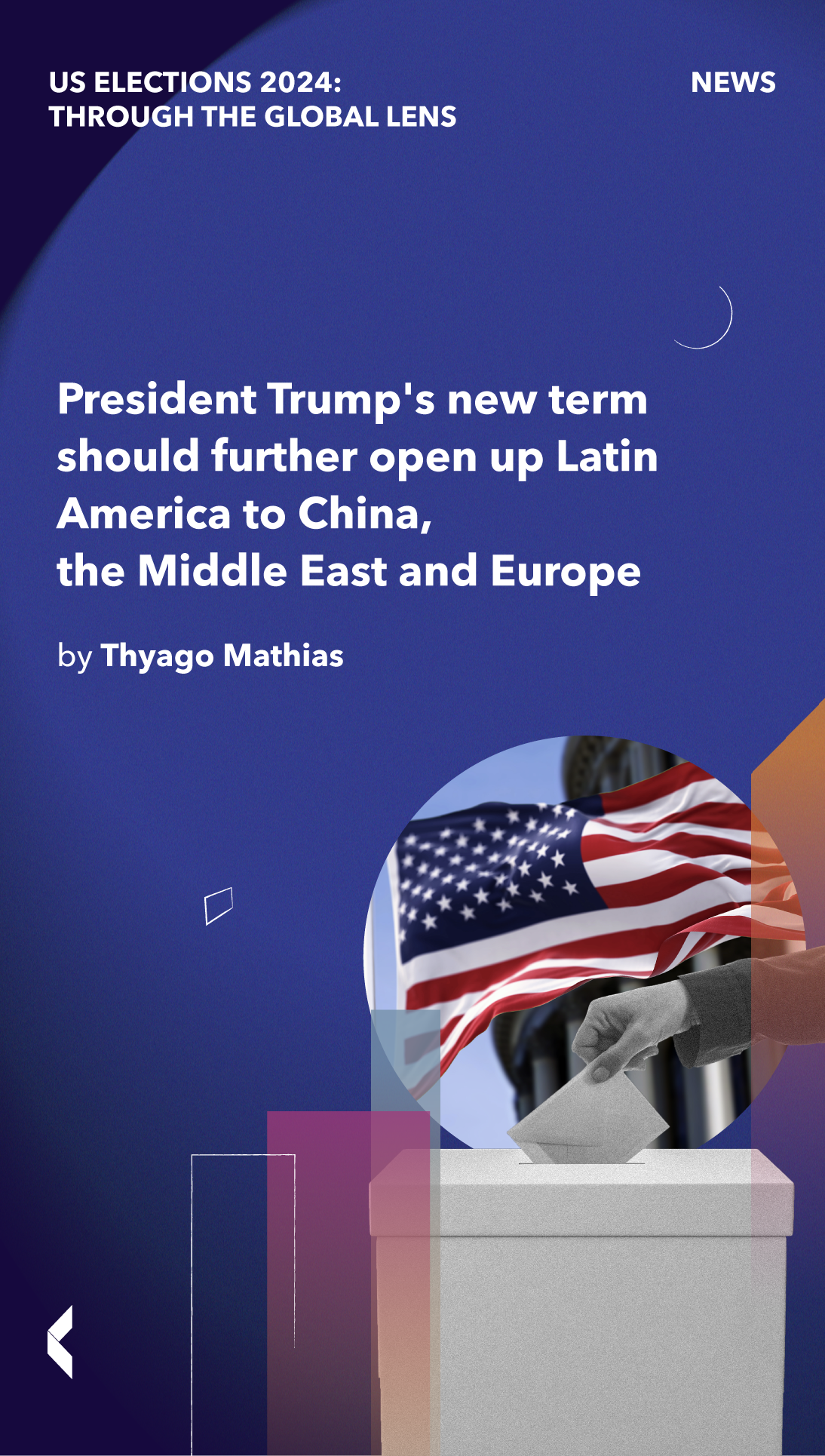About the Author
Key takeaways:
- Trade and Tariff Shifts: Trump’s re-election could lead to increased tariffs and protectionism in the USA, potentially impacting Latin American export economies, particularly in Brazil and Mexico.
- Labour Market Changes: Restrictive immigration policies may reduce remittances to Latin America, especially affecting Mexico, while creating opportunities for Latin American companies to fill labour shortages.
- Financial Impact and Supply Chains: Planned tax cuts and deregulation may strengthen the USA dollar, pressuring Latin American economies with capital outflows and prompting regional businesses to reconsider supply chains and trade alliances.
As Donald Trump returns to the White House, Latin America faces a potential shift in its economic landscape. With a policy agenda expected to amplifying tariffs, restricting immigration, extending tax cuts, and deregulating industries, the USA under Trump could present both challenges and opportunities for Latin American countries, particularly for Brazil and Mexico. Given these foreseeable changes, businesses in the region must brace for potential disruptions while also seeking avenues for strategic adaptation, a pathway through which SEC Newgate operation in Latin America is guiding our stakeholders. Our reflection comes from serial conversations among policy makers, businesspeople, civil rights activists and investors operating in the region.
Trade and tariffs: further from the US, closer to China?
One of the cornerstones of now elected President Donald Trump’s economic platform is a continued commitment to increasing tariffs on imports, especially from China. The ripple effect on Latin American countries may be less direct, as Brazil and Mexico, overall, are not the primary targets of USA trade protectionism. However, with heightened tariffs on Chinese goods, demand for Latin American exports, particularly raw materials and agricultural products, may fluctuate. For Brazil – a major commodity exporter – the stronger USA dollar, combined with weaker commodity prices, could strain its export revenue.
As the opposite to Brazil, that has never benefited much from nearshoring, Mexico and its close trade ties to the USA might experience reduced demand for goods where American firms might prefer to reshuffle supply chains domestically rather than rely on foreign inputs. We have also to consider that this trend tends to strength even more the interest of Chinese companies and traders to invest and import from the region.
Increased tariffs and protectionism under President Trump may prompt USA companies to continue reshoring supply chains, decreasing reliance on foreign production. For Mexico, which has long benefited from its proximity to the USA through the North American Free Trade Agreement (NAFTA) and its successor, the United States-Mexico-Canada Agreement (USMCA), this shift could disrupt sectors that depend on easy access to USA markets. Companies that once relied on low-cost Mexican manufacturing for cross-border supply chains may find it advantageous to relocate operations back to the USA, especially if incentives are introduced to favour domestic production.
For Brazilian and Mexican exporters, this pivot by the USA may open opportunities in other markets seeking alternatives to American suppliers. However, an increased focus on domestic production in the USA could result in lower demand for imported goods, pressuring Latin American industries to adjust production and focus on regional trade alliances, such as Mercosur – whose trade agreement negotiation with the European Union has been indefinitely postponed due to internal divergences inside both groups – or the BRICS, to offset potential losses.
Immigration and labour markets: a double-edged sword
Trump’s firm stance on immigration has historically led to a reduction in the flow of labour into the USA and, by extension, a shift in remittance flows to Latin America. With tighter immigration policies likely to return, remittances – a significant source of income for many Latin American families – may decline, especially for Mexico, whose economy relies heavily on this income stream. Such restrictions can also lead to a diminished labour force in the USA, leading to rising wages as businesses struggle to fill positions. This wage inflation could create a competitive advantage for Latin American companies operating in sectors that can capture outsourced business from the USA or where labour costs remain comparatively lower.
For Brazil, which has a smaller proportion of emigrants relative to its population, the impact may be less immediate. Nonetheless, tighter USA immigration policies could lead to an indirect impact on the demand for services across the region, particularly if wage pressures in the USA slow its economic growth. Mexican industries may feel this more acutely, as sectors like automotive manufacturing depend on smooth cross-border economic integration with the USA.
Tax cuts and deregulation: an uncertain stimulus
Elected President Trump’s plan to extend previous tax cuts and possibly introduce additional reductions could initially stimulate investment in the USA economy. This is likely to appeal to American businesses, reducing their tax burden and potentially incentivising expansions within the USA However, the impact on Latin America could be mixed. A revitalised USA economy could mean higher capital inflows to Latin America as USA-based investors seek to diversify holdings. However, as USA interest rates remain high to counter inflationary pressures, Latin American economies may experience capital outflows as investors seek higher returns in the American market.
In response, Latin American countries, particularly those more reliant on foreign capital, may need to raise interest rates to remain attractive to investors, creating a knock-on effect on borrowing costs domestically. For Brazil, this could complicate its ongoing economic reforms aimed at reducing public debt, while for Mexico, it could mean slower growth in sectors reliant on external financing. Nonetheless, firms that have invested in productivity-enhancing technology may find opportunities to capture market share from less agile competitors, reinforcing the importance of innovation across Latin American economies.
The potential for a deflationary effect looms as other global producers, such as China and Germany, face surpluses they cannot easily redirect to the American market. In response, countries like Brazil and Mexico may need to look inward, fostering domestic consumption and potentially adjusting their own tariffs to remain competitive. However, the scope for a sustained policy shift toward self-sufficiency will depend heavily on domestic economic stability, something both Brazil and Mexico may find challenging under restrictive fiscal constraints.
Navigating the uncertain economic landscape that persists
The new election of Donald Trump brings a set of challenges that Latin American economies – particularly Brazil and Mexico – must navigate with caution. As these nations grapple with fiscal pressures, persistent inflation, and the need for technological innovation, businesses operating in the region should consider strategic adjustments to anticipate and respond to these external pressures. This may include reinforcing the engagement with political and civil society stakeholders to protect exports, diversifying trade relationships, and leveraging technological advancements to remain competitive amid a rapidly evolving global economic environment.
In this environment, a global coordination with local understanding in government relations and strategic communications across Europe, China, the Middle East – even – the USA may become essential for companies looking to safeguard their interests in Latin America. As the USA gears up for another term under a Trump administration, Latin American businesses should seek proactive approaches, both to mitigate risks and to capitalise on emerging opportunities in a challenging economic climate. Now operating from the region, our experts in SEC Newgate are ready to guide and support companies in upcoming times of rough seas.

